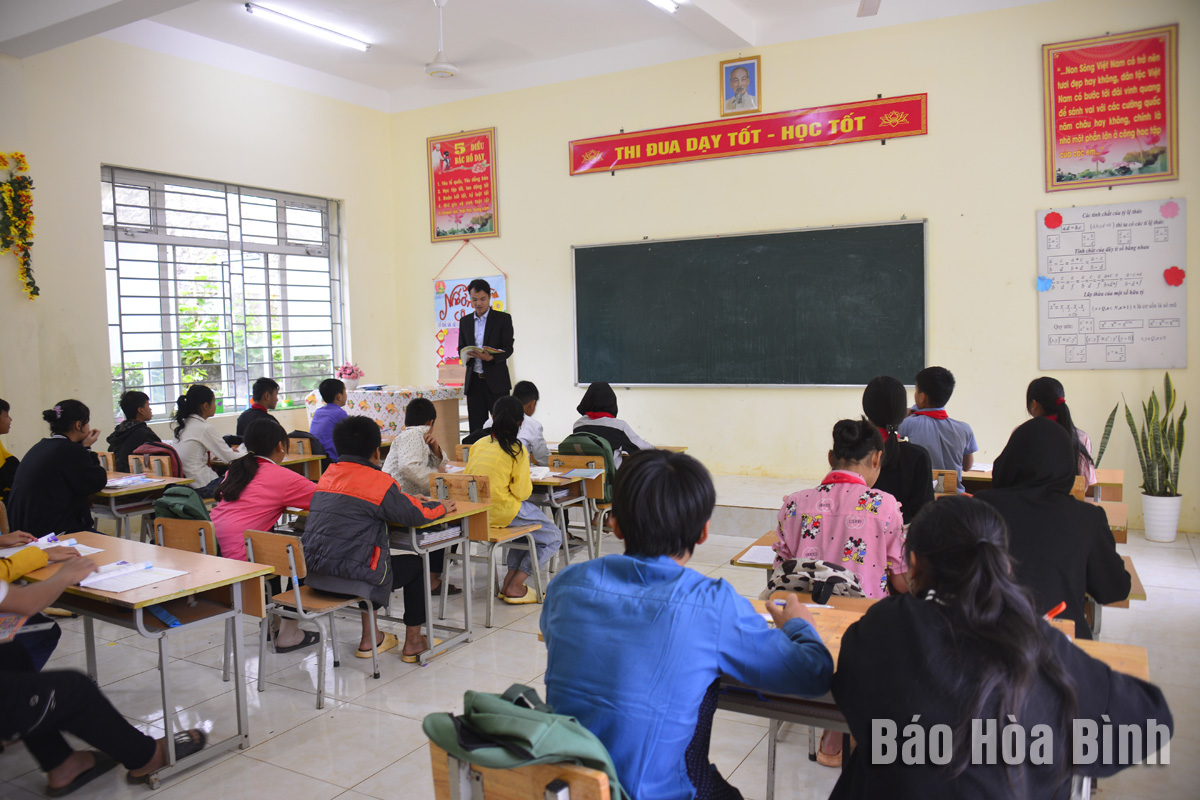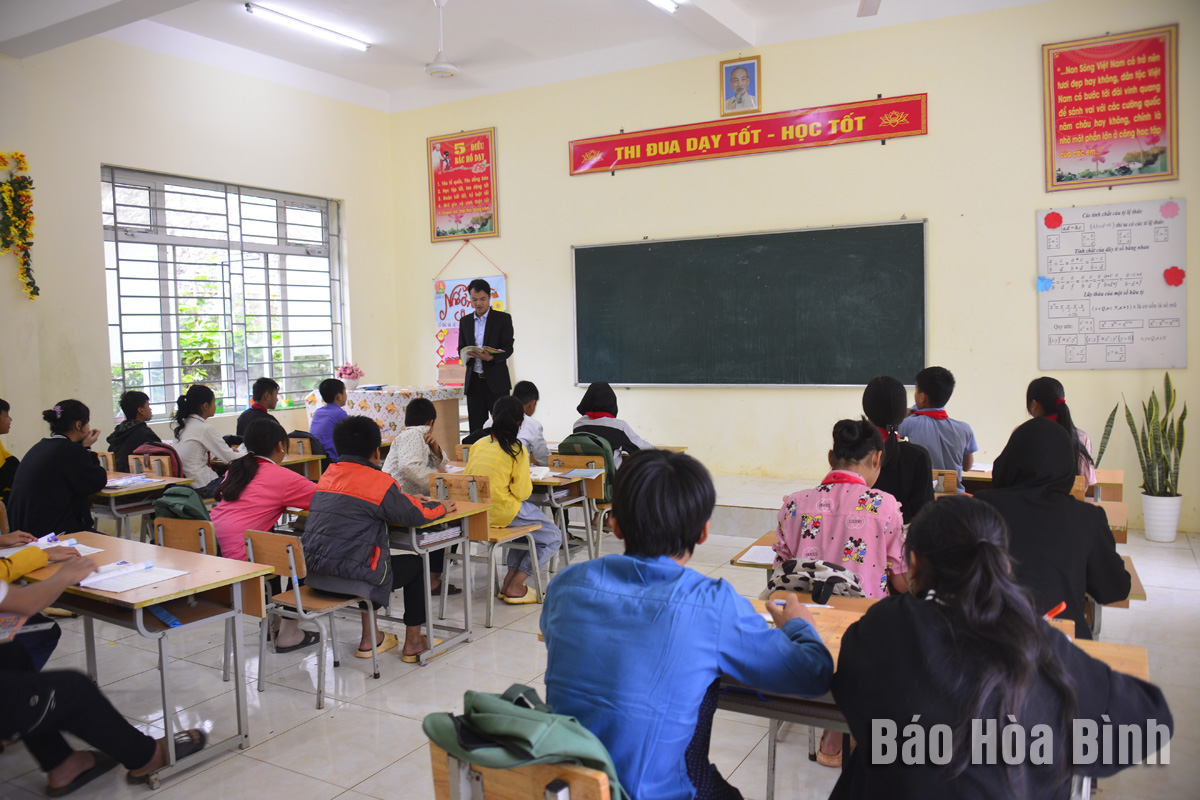
Tan Lac district has achieved important results in implementing the 11th-tenure Party Central Committee’s Resolution No 29-NQ/TW, dated November 4, 2013, which instructs comprehensive reform of education and training to meet the demand of industrialisation and modernisation in the socialist-oriented market economy and international integration.
Ngo Luong Primary and Junior High School in Tan Lac district focuses on promoting education reform and improving the quality of education.
The district’s Party Committee has issued resolutions, directives, action programmes and plans to direct the implementation of the Party Central Committee resolution.
Every year, the district authority organises seminars and conferences, and working sessions with representatives from the education and training sector, high schools, and vocational training centres, to discuss measures to address difficulties, obstacles, and issues that have impacts on the education and training work in the locality.
The district established Steering Committees for reforming the general education programme, building schools meeting national standards, and developing a learning society.
According to Vice Secretary of the district Party Committee Quach Cao Son, the total budget expenditure for education in the district reached over 3 trillion VND (over 132 million USD) in the 2013 – 2023 period, including nearly 300 billion VND for development investment.
Programmes to build permanent schools and classrooms, and key programmes and projects serving the development of vocational training and education in disadvantaged and ethnic minority areas have been implemented effectively, contributing to ensuring conditions for teaching and learning activities, and improving the quality and meeting requirements of education reform.
So far, the district has 1,342 classrooms and functional rooms. 100% of high schools have been equipped with information technology rooms, and televisions connected to the internet.
Party committees, local authorities, and socio-political organisations have actively collaborated in mobilising capital from social sources for education and building the movement of study encouragement and talent promotion.
The locality mobilised over 50 billion VND, and more than 20,000 sq.m of land for building schools over the last 10 years. The number of schools meeting national standards in Tan Lac district is 29. The district is among the top localities in the province in term of quality of education, with many effective educational models being expanded. The annual rate of students graduating from junior and senior high schools reaches at least 99% and 96%, respectively.
The emulation movement "Hoa Binh joining hands to build new-style rural areas” has been widely spreading, becoming a driving force that motivates the localities to renew rural landscapes and improve the material and spiritual lives of the residents. In this movement, the people play a central role-both as the main implementers and direct beneficiaries of its outcomes.
In response to the global digital revolution, Hoa Binh Newspaper is transforming itself into a modern and multi-platform media hub, blending cutting-edge technology with a restructured newsroom and a new generation of tech-savvy journalists.
Hoa Binh province’s Association of the Elderly recently held a conference to review the project on expanding the inter-generation self-help club model until 2025.
In a move to implement Resolution No. 57-NQ/TW, issued on December 22, 2024 by the Politburo, which targets breakthroughs in science-technology development, innovation, and digital transformation, the Hoa Binh provincial Department of Health has issued a plan to roll out the "Digital Literacy for All” campaign within the local health sector.
An Nghia Commune (Lạc Sơn District) is one of the communes that achieved the tha standard of the national new rural area in 2018. Entering a new development phase, the commune is now trying to meet the criteria for the advanced new rural development. With the strong political will and the public consensus, the commune is gradually overcoming the challenges to reach this goal, aiming for the sustainable development.



